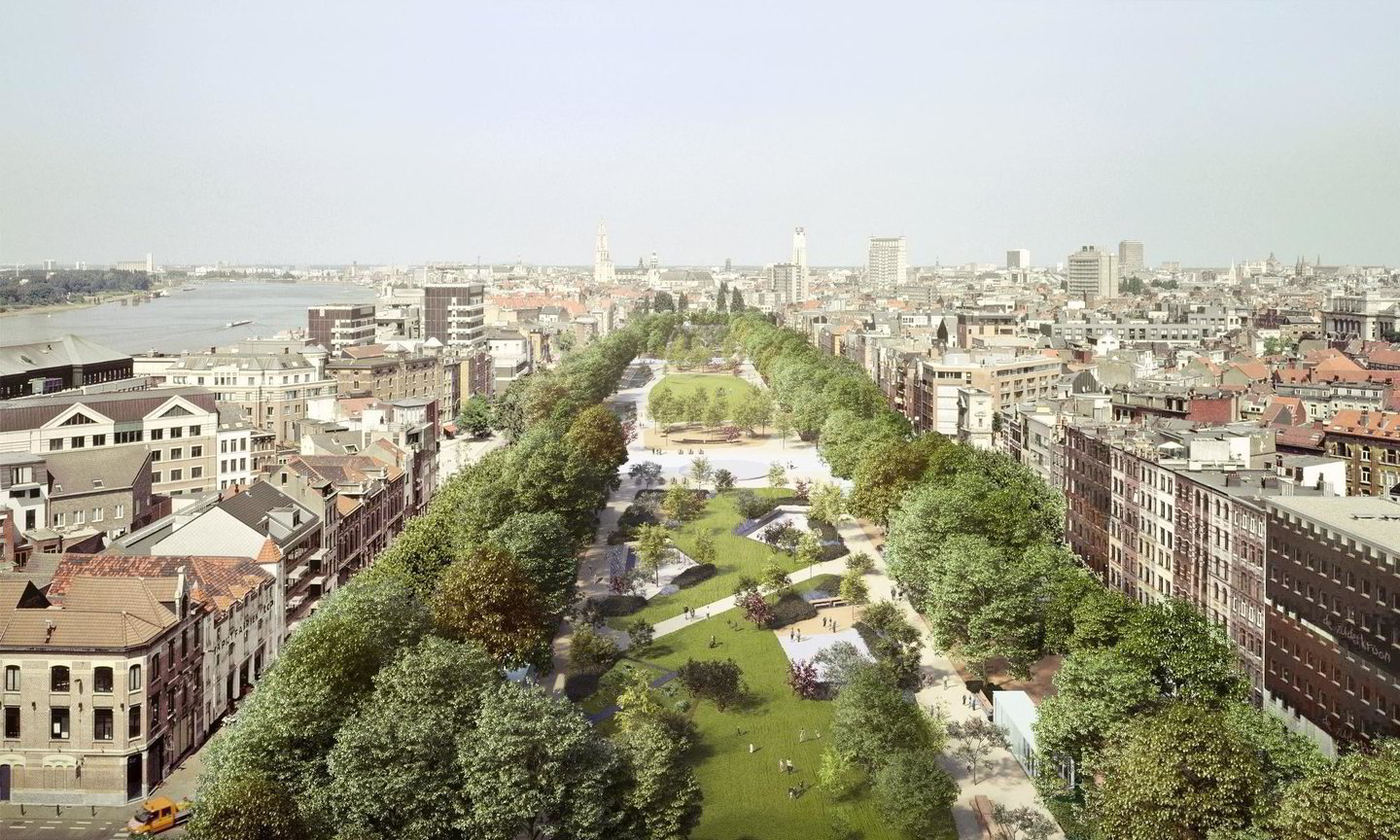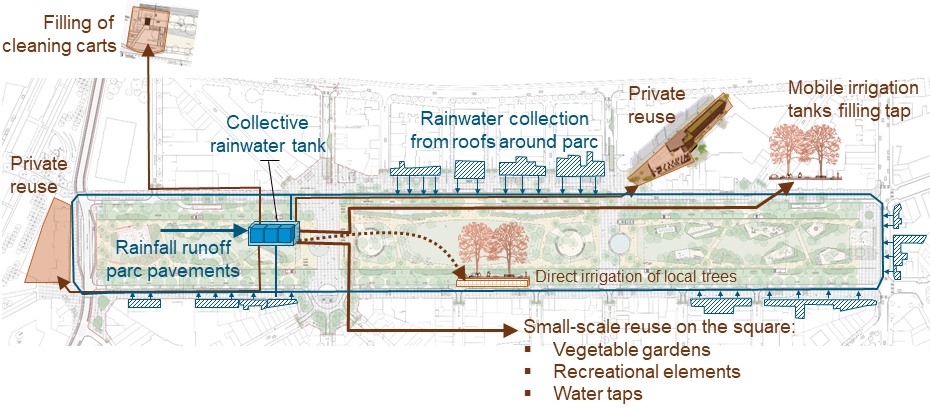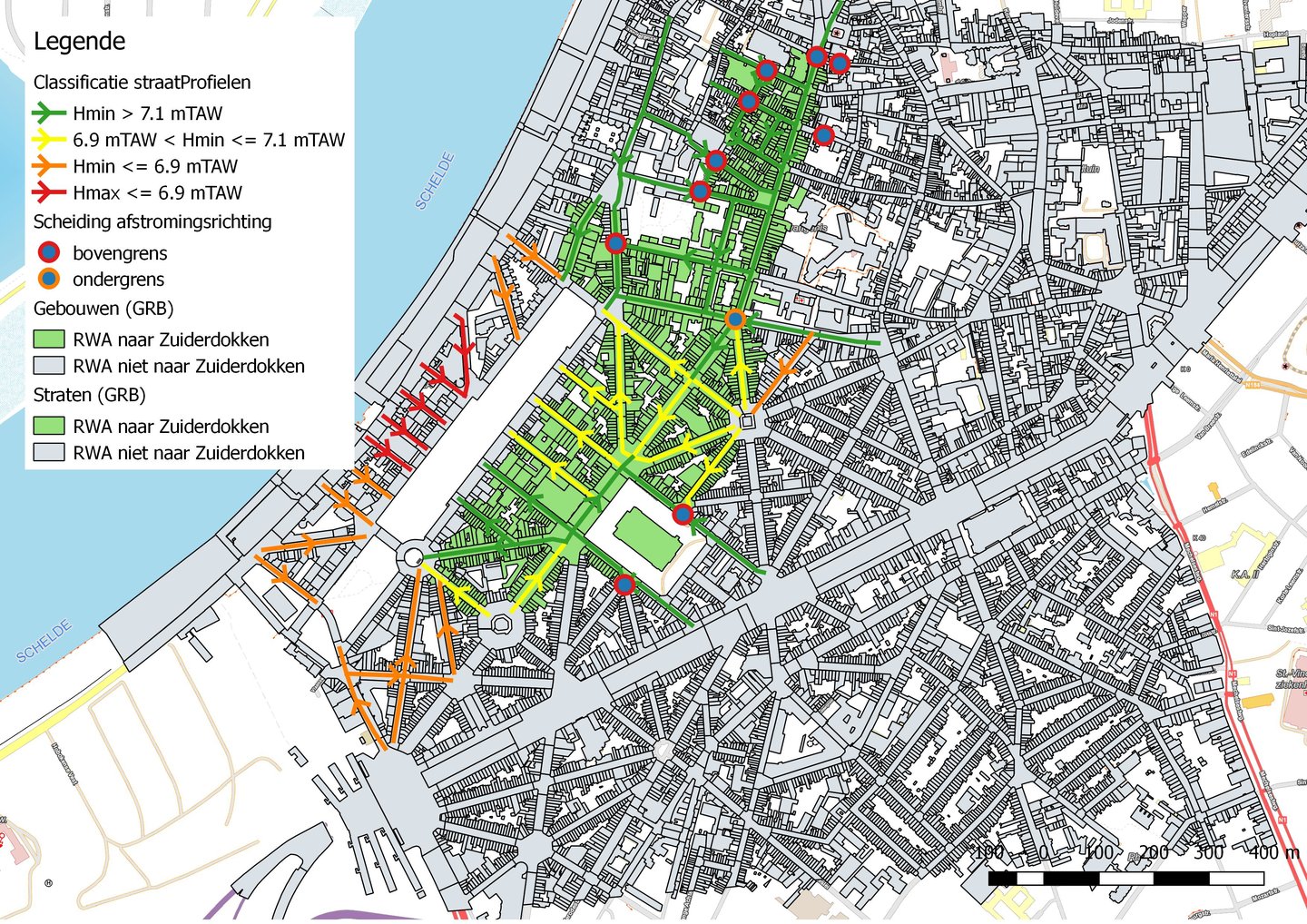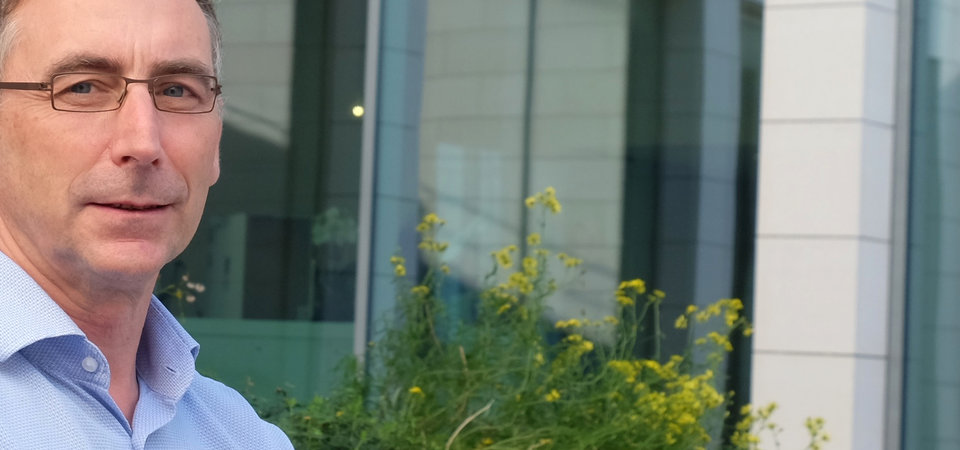
Collective rainwater storage tank and rainwater management plan at the new park area “Gedempte Zuiderdokken” in Antwerp
In the context of refurbishing the public domain ”Zuiderdokken” in Antwerp (Belgium), the City of Antwerp wanted to investigate the feasibility of rainwater reuse. Furthermore the rainwater management plan of the complete “Zuid” district was to be updated. Both actions aimed at taking measures to make the district more resilient to expected climate change (more intense rainfall, longer dry periods).
IMDC first made a thorough inventory of possibilities for rainwater reuse, such as irrigation of trees, private reuse, cleaning of sewers and gullies, and even upgrading to drinking water. Next, long-term simulations with a water balance model were performed, taking into account climate change scenarios, which supported the conceptual design and detailing of the technical measures. The concept of a ‘smart buffer’, which empties when heavy rainfall is predicted, was also considered. Finally, IMDC made a cost-benefit analysis to substantiate a business case.
The study fitted in the Interreg 2 Seas project SPONGE2020, a European project aiming at testing innovative measures to better mitigate the consequences of climate change in an urban environment. The results of the study led to the construction of a collective rainwater buffer of about 1.500 m³ in the southern part of the new park.




Data
- Client: Tractebel Engineering
- Start date: 2017
- Completion date: 2018


